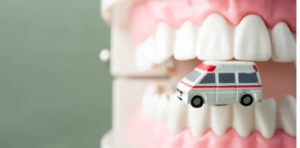In the bustling city of Adelaide, where life moves at a rapid pace, dental emergencies can strike unexpectedly, causing pain, discomfort, and anxiety. Yet, amid the urgency of such situations, there shines a beacon of hope: the emergency dentist. These skilled professionals play a vital role in preserving smiles, alleviating pain, and ensuring oral health remains a priority even in the most dire circumstances. In this article, we delve into the importance of emergency dentists in Adelaide and why their services are indispensable to the community.
 Understanding the Need for Emergency Dentists:
Understanding the Need for Emergency Dentists:
Dental emergencies can encompass a wide range of issues, from severe toothaches and broken teeth to knocked-out teeth and oral infections. Unlike scheduled dental appointments, emergencies require immediate attention to prevent further complications and mitigate pain.
Timely Intervention and Treatment:
One of the primary reasons emergency dentists are indispensable is their ability to provide timely intervention and treatment. Unlike traditional dental practices, which operate on scheduled appointments, emergency dental clinics in Adelaide are equipped to handle urgent cases at a moment’s notice.
Preventing Further Complications:
Dental emergencies left untreated can escalate rapidly, leading to severe complications such as infections, abscesses, and even tooth loss. By seeking prompt assistance from an emergency dentist in Adelaide, individuals can prevent these issues from worsening and avoid the need for more extensive and costly treatments down the line. Whether it’s addressing a cracked tooth, managing a gum infection, or stabilising a knocked-out tooth, the swift action taken by emergency dentists can often mean the difference between a minor inconvenience and a major dental crisis.
Availability and Accessibility:
Accessibility is another crucial aspect of emergency dental care in Adelaide. Dental emergencies can occur at any time, whether it’s during office hours, late at night, or on weekends and holidays. Fortunately, many emergency dental clinics in Adelaide offer extended hours and operate on weekends and public holidays to ensure that individuals can access care when they need it most. This availability ensures that no one has to endure dental pain or discomfort for longer than necessary and underscores the commitment of emergency dentists to their patient’s well-being.
Expertise and Specialised Care:
Emergency dentists undeniably possess the expertise and skills necessary to effeciently handle a wide range of dental emergencies effectively. Through years of training and experience, they are adept at effectively diagnosing and treating various dental issues with precision and care. Whether it’s performing emergency root canals, repairing fractured teeth, or providing immediate pain relief, emergency dentists are well-equipped to deliver the specialised care needed to restore oral health and function. Their ability to remain calm under pressure and make quick, informed decisions is invaluable in high-stress emergencies.
Compassionate Patient Care:
Beyond their technical proficiency, emergency dentists in Adelaide are known for their compassionate patient care. They understand that dental emergencies can be frightening and stressful experiences for individuals and strive to provide reassurance, comfort, and support throughout the treatment process. From explaining procedures in detail to offering pain management techniques and follow-up care instructions, emergency dentists prioritise the overall well-being of their patients and ensure that they feel heard, understood, and cared for every step of the way.
Building Trust and Confidence:
The relationship between patients and emergency dentists is built on trust and confidence. Knowing that there’s a skilled professional ready to assist in times of need fosters a sense of security and confidence among Adelaide residents. Whether it’s a child with a toothache, an adult with a dental injury, or an elderly individual experiencing oral health complications, having access to reliable emergency dental care instils peace of mind and empowers individuals to prioritise their oral health without hesitation.
In conclusion, an emergency dentist plays a crucial role in preserving smiles, alleviating pain, and promoting oral health in Adelaide. Their ability to provide timely intervention, prevent further complications, and offer compassionate care makes them indispensable members of the healthcare community. By ensuring accessibility, delivering specialised expertise, and educating the public, emergency dentists empower individuals to prioritise their oral health and seek prompt care when emergencies arise. As guardians of dental well-being, they stand ready to save smiles and make a positive difference in the lives of Adelaide residents, one emergency at a time.

 A dental hygienist is a licensed professional who specialises in maintaining the health of the oral cavity. Licensed dental professionals who practice hygiene are members of a regulatory body or dental association. Licensed dental hygienists are highly trained and experienced in the care of patients. They are responsible for maintaining patients’ health by performing routine cleanings and analysing x-rays. They are also highly skilled in using modern dental equipment.
A dental hygienist is a licensed professional who specialises in maintaining the health of the oral cavity. Licensed dental professionals who practice hygiene are members of a regulatory body or dental association. Licensed dental hygienists are highly trained and experienced in the care of patients. They are responsible for maintaining patients’ health by performing routine cleanings and analysing x-rays. They are also highly skilled in using modern dental equipment.